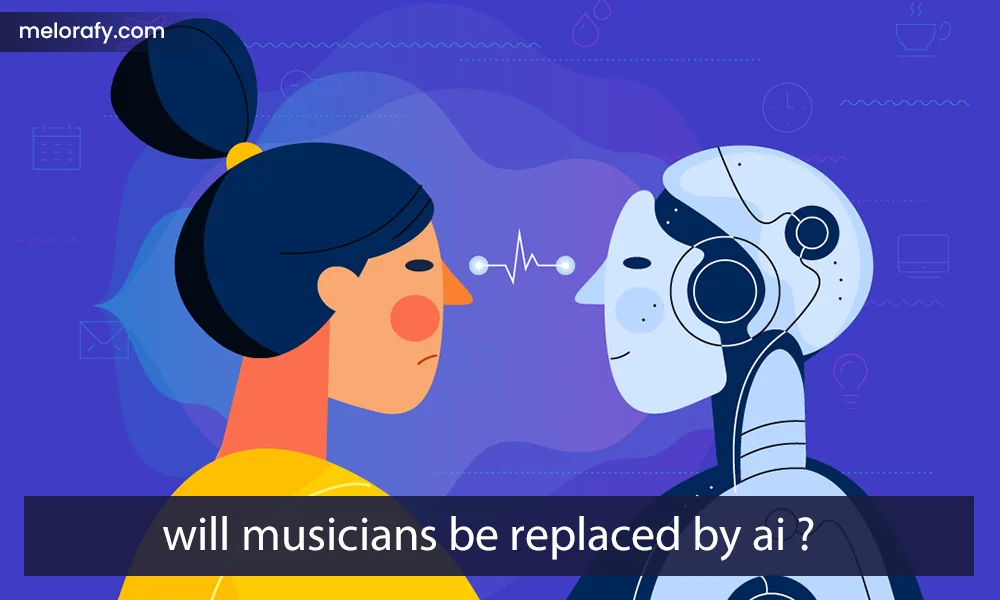
will musicians be replaced by ai?
In the ever-evolving landscape of technology, the creative arts, especially in the realm of music, have experienced a seismic shift. The rise of artificial intelligence (AI) in the music industry has sparked a debate that resonates with both excitement and trepidation: Will AI ever completely replace musicians? This article from Melorafy looks at the current capabilities of AI in music, its implications for musicians and the industry, and the future direction of this amazing technology.
The Emergence of AI in Music
AI has made significant inroads into the creative process of music production. Tools like AI composition software, algorithm-based music recommendation systems, and even virtual AI performers have become part of the music ecosystem. These technologies can analyze vast amounts of data, learn from music patterns, and even generate new compositions that resonate with human emotions and preferences.
The Capabilities of AI in Music Creation
AI-driven music creation tools have demonstrated the ability to compose pieces across various genres, from classical to pop and beyond. These compositions often blur the lines between human and machine creativity, leaving listeners amazed and, at times, unable to differentiate between the two. Moreover, AI can work tirelessly, producing vast amounts of music at a pace and consistency unmatchable by human composers.
![]()
Implications for Musicians and the Industry
The integration of AI into music has sparked a spectrum of reactions. On one hand, it presents an array of opportunities for innovation and creativity. Musicians can collaborate with AI to push the boundaries of their art, exploring new sounds and compositions that were previously unimaginable. On the other hand, there are valid concerns about the devaluation of human creativity and the potential for job displacement within the industry.
The Human Touch in Music
Despite AI’s impressive capabilities, the essence of music lies in its ability to convey emotions, stories, and experiences that are deeply human. The nuances of emotion, the subtleties of expression, and the connection that music can forge between the artist and the listener are aspects that AI has yet to fully replicate. The human touch in music, characterized by imperfections, emotion, and the unique perspective of the artist, remains irreplaceable.
Future Trajectories
The future of AI in music is both promising and uncertain. As technology continues to advance, AI will undoubtedly play a larger role in music creation and production. However, rather than viewing AI as a replacement for human musicians, it is more constructive to see it as a tool for augmentation and collaboration. The fusion of human creativity with AI’s capabilities can lead to unprecedented levels of innovation in music.
The Ethical Considerations of AI in Music
As we delve deeper into the integration of AI in music, ethical considerations come to the forefront. Issues such as copyright, ownership of AI-generated music, and the potential for AI to replicate existing styles without consent pose significant challenges. The music industry must establish clear guidelines and frameworks to address these issues, ensuring that AI is used responsibly and does not infringe upon the rights and livelihoods of human artists.
![]()
The Role of Education and Adaptation
For musicians and those aspiring to enter the industry, the rise of AI necessitates a shift in mindset and skills. Education systems dedicated to music and arts should incorporate understanding and utilization of AI technologies, preparing students for a future where technology and human creativity are intertwined. Musicians can benefit from learning how to use AI as a tool for composition, sound design, and even live performance enhancement.
The Impact on Music Consumption and Experience
AI also transforms how music is consumed and experienced by listeners. Personalized music recommendations, AI-curated playlists, and even virtual concerts by AI-generated avatars are becoming more common. These innovations can enhance the listener’s experience, offering new ways to discover and interact with music. However, they also raise questions about the impact on live performances and the value of experiencing music in a communal setting.
The Potential for New Musical Genres
One of the most exciting prospects of AI in music is the potential creation of entirely new genres and sounds. By analyzing and learning from a vast array of musical styles, AI can generate compositions that blend elements in ways previously unimagined. This could lead to a renaissance in music, with new genres that reflect the fusion of global cultures, historical periods, and futuristic sounds.
The Importance of Human-AI Collaboration
Ultimately, the most successful use of AI in music will likely come from collaborative efforts between humans and machines. By leveraging AI’s capabilities for data analysis, pattern recognition, and efficiency, while infusing the creative process with human emotion, intuition, and experience, artists can create music that is both innovative and deeply resonant. This partnership between human and AI can elevate music to new heights, exploring uncharted territories of sound and expression.
![]()
The question of whether musicians will ever be fully replaced by AI is complex and multi-faceted. While AI has the potential to revolutionize the music industry with its capabilities, the human element in music creation remains fundamental. The future of music lies not in the replacement of musicians by AI but in the harmonious integration of technology with human creativity. As we navigate this new era, the music industry must embrace both the challenges and opportunities presented by AI, ensuring that technology enhances rather than diminishes the art of music.
In summary, AI in music is a rapidly evolving field that offers both opportunities and challenges. As technology progresses, the collaboration between human musicians and AI will likely become more integrated, leading to new forms of musical expression. However, the unique qualities of human creativity and emotional expression in music are irreplaceable, ensuring that musicians will continue to play an essential role in the art form’s future.